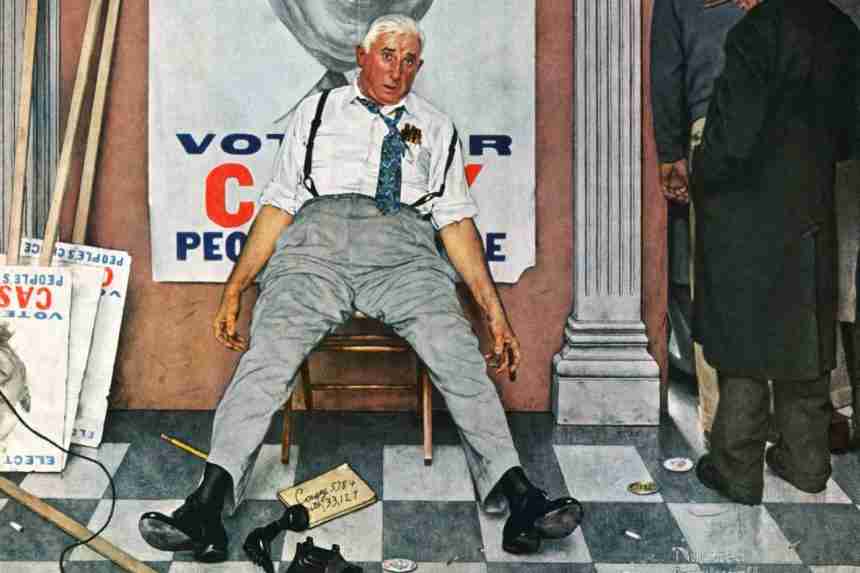Many of you will wake up tomorrow morning and realize that months, if not years, of planning and preparation are about to come to an end – for good or ill.
As a candidate on Election Day, what do you do? You went from knocking on doors, calling for dollars, meeting and greeting, to now waiting 14 hours (or more thanks to some changes in vote counting) for democracy to decide your fate .
It’s no longer in your control. There is nothing more you can do. What a strange feeling.
Let’s explore this a little.
Your alarm goes off in the morning, assuming you slept the night before, and you’re filled with anxiety (if not, you don’t have to run for office). So many questions swirl through your brain: Have we done enough? Have we sent enough mail? Have we spent enough on digital? Were our pieces too pedestrian? Should we have hit harder? Have we knocked on enough doors? Have we covered every city (or neighborhood)? You replay every moment, from petition filing day to Election Day, to determine if what you did was enough to win. Chances are, if you took it seriously, you did everything you could. It is, however, a difficult self-examination.
Many recurring candidates are superstitious; they have a habit of going to their campaign headquarters and bringing coffee and donuts to the poll workers while they make their “rounds.” Not a bad start to the day.
Then there are those candidates who go to headquarters to check on the campaign team. They are waiting for the 10 a.m. call with the participation numbers of certain cities or precincts. They offer to drive people to the polls. In fact, they are showing up to the polls to address their own challenges. Way too late in the game and way too ridiculous for you to do it.
Some Election Day operations are proven to work, while others are unscheduled and just bananas. This is the beauty of our democracy.
Typically the campaign manager, if he’s half decent at his job, has a program in place to get turnout numbers, is in touch with challengers if there are any problems, and has lawyers waiting.
It is only after experiencing the complex and insane operations of Election Day, both as a candidate and a campaign manager, that I can say with great experience and conviction that a candidate should not see the guts of Election Day operations.
The candidate should not be involved in the details of the last and final day. Nothing good will come from a candidate who asks about logistics that staff have been planning for months. The candidate will receive text messages and calls from well-wishers and individuals who will report an anomaly that will only hyperventilate the already anxious candidate. Someone will invariably try to show their “worth” by reporting directly to the candidate. This happens without fail in this business. It’s not helpful, but it still happens.
Just like a five-year-old, the candidate needs to be managed and entertained during the day.
I know a congressman who went bowling with the staff every Election Day, and he and the staff hated bowling. I know another candidate who went to the same Italian restaurant with close supporters and talked shop for 4 hours. Most candidates have a routine. What is important is that the candidate takes the political version of the Hippocratic Oath: do no harm.
In 2007, during my last competitive race, I stayed up last week fine-tuning every detail and was exhausted and with little to do that day – shocking, I know.
I had an extraordinarily capable staff and they had the Election Day operation down to a science. Their voting target program was executed perfectly and we came within 60 votes of our targets. However, I wanted to micromanage and get involved. I wasn’t told so politely to get lost. Oddly, and against my nature, I actually listened.
Instead, I visited random polling stations and seats. I walked around and called my supporters to thank them, but it was now 10am. I received last day checks (another interesting topic about these professionals who hand deliver checks the same day). A close friend suggested I play a few holes of golf, and at the time I hated golf. I lost time, even managed to take a nap and waited 20 hours to ride.
It seemed like the clock was going backwards.
I took preliminary numbers at 8:15 p.m. from the city of Oakland. It was a swing town for us in the primary and once we won it 2 to 1, I knew the race was over. I walked to the overflowing campaign headquarters and thanked the room full of supporters. Not all of them were my supporters, some people actually left my opponent’s barren headquarters when they only saw 6 people – true story.
Tomorrow is the day you’ve been waiting for.
Candidates: If you took the campaign seriously and did everything you were supposed to do, you won’t have anything left to do or worry about.
Campaign Staff: Your candidate will ignore the sentence above. It’s up to you to fill their day with distractions so you can get your job done.

